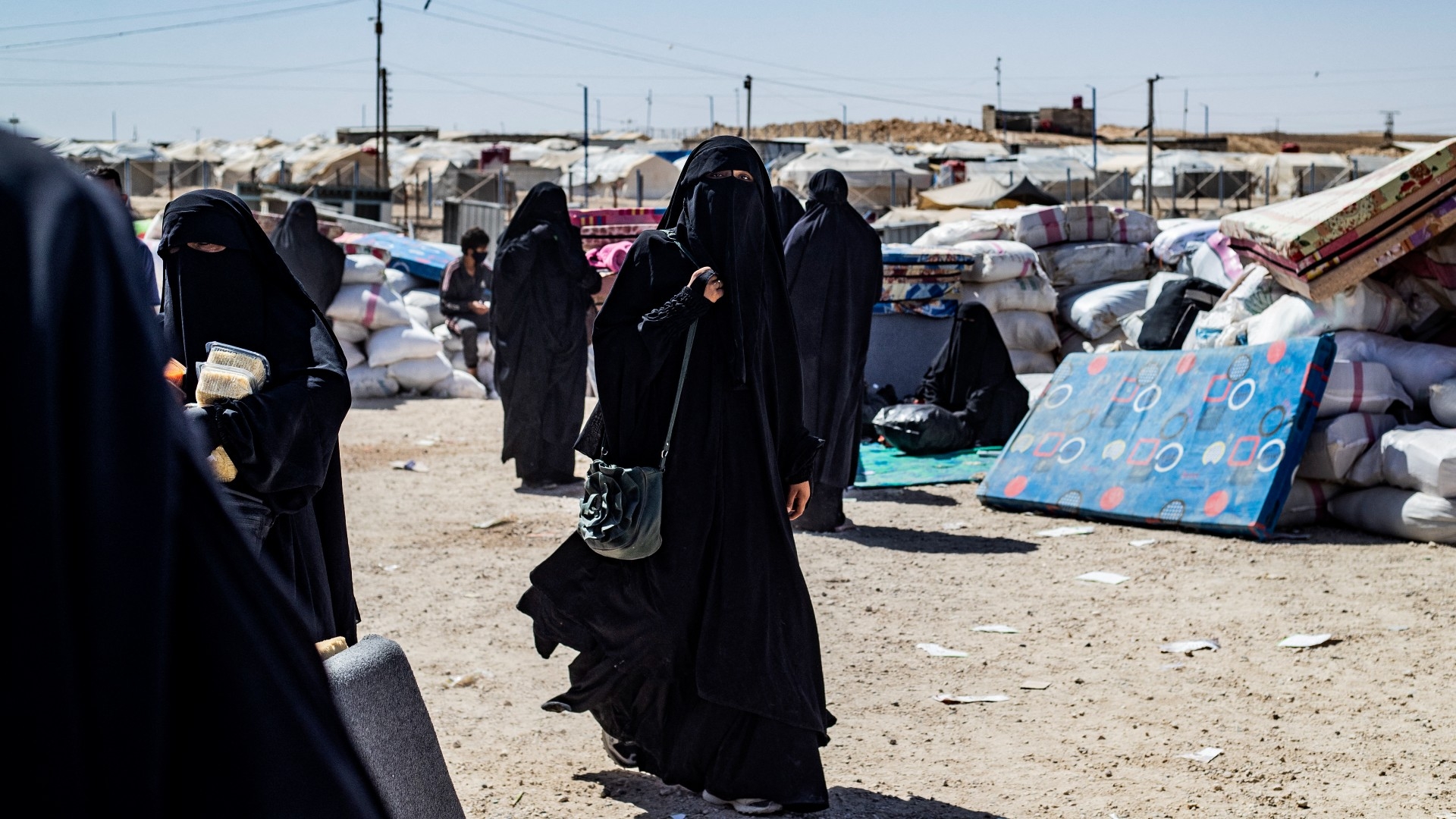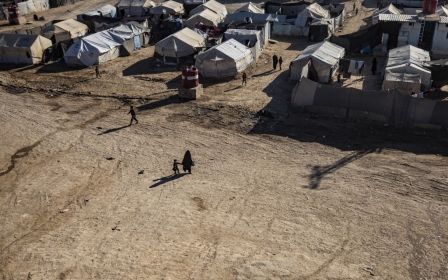US Supreme Court declines to hear case of woman who joined Islamic State

The US Supreme Court has refused to hear the appeal of an American Muslim woman who joined the Islamic State (IS) group and is seeking re-entry to the US.
In the latest blow to Hoda Muthana's legal case, America's highest court on Monday declined without comment to consider her petition to re-enter the country, after she left in 2014 in order to join the militant group in Syria.
Muthana's lawyers said on Wednesday that, despite the Supreme Court's decision, they plan to continue fighting for her and her four-year-old son, who have been living in a Syrian refugee camp for nearly the entire life of the child.
Christina Jump, who works with the Constitutional Law Center for Muslims in America, told the Associated Press that attorneys were considering their options.
"We intend to stand by Hoda and her son and their rights to citizenship," she said. “We do intend to keep working on her behalf."
New MEE newsletter: Jerusalem Dispatch
Sign up to get the latest insights and analysis on Israel-Palestine, alongside Turkey Unpacked and other MEE newsletters
Muthana was 20 and a student at the University of Alabama at Birmingham when she left the US, using her college tuition money to secretly buy a plane ticket to the Middle East.
During her time there, she married three IS fighters, having a child with her second husband, who was killed in battle. She later escaped IS-held territory and surrendered to Kurdish forces, who placed her in a refugee camp with her child.
While she was abroad, US authorities argued that Muthana, now 27, was not a US citizen and revoked her passport in 2016.
In 2019, Muthana's father appealed against a federal court decision which barred her entry.
Muthana, the daughter of a former Yemeni diplomat, was born in the US. But under US law, the children of diplomats born in the country are not automatically granted citizenship.
In his lawsuit, Ahmed Ali Muthana argued his family had given up diplomatic status before his daughter was born, making her a citizen. They maintained Muthana was previously recognised as a citizen by the US State Department and given a US passport in 2004.
Muthana's case has been compared with that of Shamima Begum, who has been stripped of her British citizenship in 2019 after leaving the UK to live under IS rule as a teenager.
In a statement to CNN in 2019, Muthana said she was a "naive, angry and arrogant young woman" when she left the US for Syria.
Muthana has since said she deeply regrets joining IS, and apologised for her posts promoting the group, adding that she was prepared to face any legal consequences for her actions if she returns to the US and that she wants her son to grow up as an American citizen.
Her attorney said her legal team has had a hard time maintaining regular contact with Muthana because she is not allowed to have her own mobile phone in the camp where she lives, and internet service is spotty.
Middle East Eye delivers independent and unrivalled coverage and analysis of the Middle East, North Africa and beyond. To learn more about republishing this content and the associated fees, please fill out this form. More about MEE can be found here.





